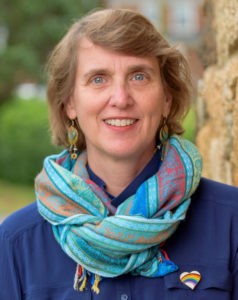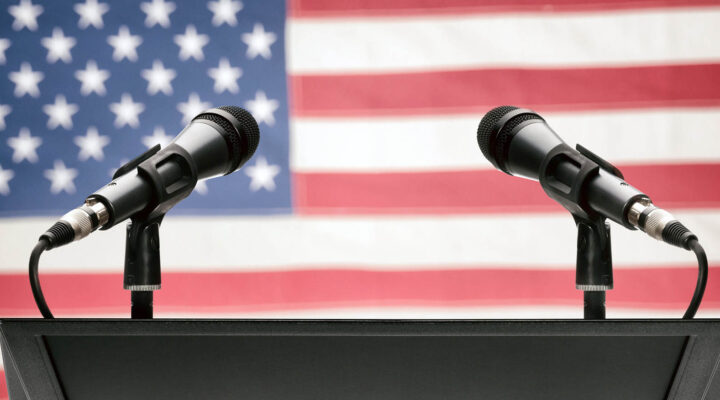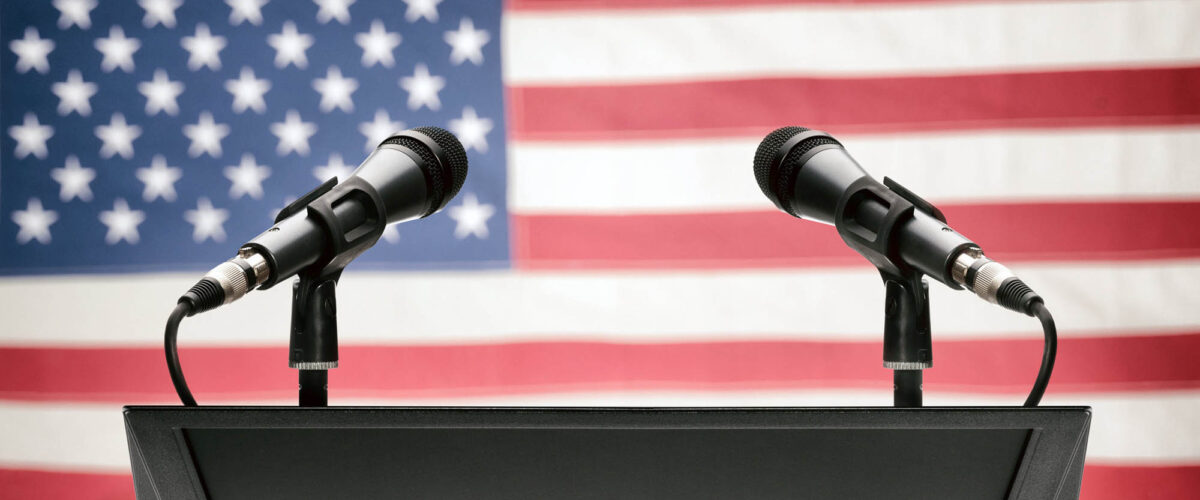In the 1980s and ’90s, while I was teaching English, I also was a debate coach. High school debate is a lot of fun, primarily because the drama of teenagers is just as present there as it is on the football field or on the bus with the band or the cheerleaders.
Often, I needed to judge the debate events, especially the varsity debate, because that requires some experience and training — the varsity debaters speak very fast and the way one team wins over the other is by sneaking in an argument the other team doesn’t answer. Among the things judging debate teaches you is the undeniable fact that debates are a poor way to settle differences of opinion.

Martha Dixon Kearse
First, the best debaters can debate any side of whatever issue they are given, whatever their beliefs might be. In high school debate, the trick is to come up with “harms” in the plan of the opposing team that they cannot answer; chiefly, in high school, everything causes a nuclear war. Spend more money on health care? Nuclear war. Legalize marijuana? Nuclear war. Pretty soon, it becomes clear that debate is fun and a great mental exercise that is also utterly useless when it comes to deciding the important issues of the human experience.
Debate never moves the needle
What is ironic in America (and in many other democratically run countries) is that the primary method of deciding public policy, the primary method of all leadership that is not autocratic, is debate. What we’ve seen over the last two decades is this problem with debate, with speeches that passionately espouse a certain policy or law or set of behaviors: No one except the people who already agree with the speaker is listening.
Debate never moves the needle, not one single millimeter. What happens, then, with the sludge-like slowness of policy making under such a system, is that people get tired of waiting and autocracy begins to look really good. Someone decisive, someone who “gets things done,” policies that get forced through with the tiniest of majorities or with loopholes that allow minorities to rule become admired and attractive. And we get where we are right now.
“People get tired of waiting and autocracy begins to look really good.”
What has happened in the last 30 years, my entire adult life, has been the stunning chaos of a conservative movement that increasingly doubles down on authoritarian rule and a progressive movement standing on the sidelines, toothless and rudderless, going, “Hey!” When nothing moves forward, space for bullying opens wide, particularly when the narrative of the last 30 years has become one of allowing people in power to get away with saying, “The sky is green.”
Some issues are not up for debate
The truth of the complicated issues we face as a society and a planet right now is that they aren’t actually debates. It’s not that two sides each have a valid point or even that there is a place in the middle where the two sides might meet. The key issues — gun safety, ethnic equality and reparations, economic distribution, food and water justice, gender equality — these are not matters for debate. And the more we permit them to be presented as debate, as issues with balanced, two-sided possible solutions, the more we leave space for the bullies and autocrats and potential dictators to move in.
We as people of faith have a great ethic with which to lead. It can be summed up in the teaching that is common to all world religions: “Do to others the same things you would like others to do to you.”
Not only is this teaching the deep wisdom of all world religions, it is an ethic that is widely accepted and taught in non-religious philosophies as well. We pretty much all agree we should not do things to other people that we wouldn’t want done to us and that we should do the things for others we would want done for us.
Instead of applying what we’ve been taught, the highest good of our collective belief systems, we have allowed ourselves to be dragged down into the quagmire of constant, futile, angry, pointless debate.
“We have allowed ourselves to be dragged down into the quagmire of constant, futile, angry, pointless debate.”
So that people are constantly being murdered with the guns we refuse to regulate.
So that people of color are constantly targeted and sidelined and ignored and harmed in ways daily and mundane and in ways extreme and violent.
So that the narrative becomes that somehow the poorest people from the most chaotic countries who come seeking refuge in our extremely wealthy country can be blamed for all our woes and labeled as a threat.
So that misogyny is endemic, harming cis-women, harming trans women, harming people who identify as LGBTQ.
Jesus and guns
Putting more guns in the hands of more people is observably wrong. It is wrong in the sense that it is incorrect to say that more guns bring more safety. That is statistically, anecdotally and actually wrong. And it is wrong in the sense that it is morally wrong and not in keeping with the teachings of our wisdom traditions and teachers.
For Christians, who follow Jesus, it is stunning to hear someone defend guns when our Messiah, the one we revere, went everywhere unarmed. Everywhere he traveled, in a country riddled with soldiers and gangs and thieves and chaos and people who wanted him dead, every single place he went for his entire ministry, he went unarmed. In fact, when he was being arrested and his followers brought out swords to defend him, he told them to put away their swords and he healed the soldier who had been hurt by one of his disciples.
It is simply not accurate to say a person can be following the way of Jesus and also have a handgun with which to shoot another human being. There is no debate to be had there.
Yes, Black and brown people are harmed
Black and brown people have been egregiously harmed by our country; they are still being harmed. That is observable fact, borne out in our schools, in our justice system, in our economy and in our day-to-day lives.
To offer as a possible alternative that they aren’t being harmed is wrong. It is wrong in the sense that the harm is happening all around us, provable on every scale. Statistics and data do not have emotions. When the statistics and data tell us that, even if everything else is on par with their white counterparts, Black and brown people have more health issues, have shorter life expectancies, have greater risks in childbirth, more breast cancer, significantly more chance of being arrested, being convicted, being incarcerated, more chance of being shot in their own religious organizations — none of those facts are up for debate.
“To pretend like none of this will be true if we simply don’t teach kindergarteners Critical Race Theory … is wrong.”
To pretend like none of this will be true if we simply don’t teach kindergarteners Critical Race Theory — an issue that would be laughable if it weren’t so harmful, since this is a systemic study offered to students on the graduate school level — is wrong. It is inaccurate, yes, but more importantly, it is morally wrong.
Jesus didn’t just ask us to take care of the people who look exactly like us, the ones we are related to. In fact, Jesus says, “Even Gentiles do that.” The way of Jesus is to offer hospitality, which is food without payment, healing without payment, shelter with safety, welcome and inclusion and a place at the table.
Medical choices?
It is infuriating to see a culture that somehow believes people’s medical choices are matters for debate. The nerve, the disrespect and arrogance required to speak about someone else’s medical decisions is appalling and yet, somehow, that is what we have allowed for quite some time.
The decision of a mother about whether she is able to carry a human life inside her own body for nine months and then care for that human person for the rest of her life is a medical decision she makes with her partner or partners and with her medical professionals. It is not a matter for debate.
The decision of a person to have medical treatments related to their gender identity is a matter for that person and their family and their medical professionals. It is not a matter for debate. No one else is in those decisions.
We don’t debate whether or not someone can have a stent put in or whether a person can donate a kidney. Those are medical decisions, not subjects for debate. Yet the misogyny of our culture is so deep-seated that we all join in, believing there are “sides,” that our “side” is right, that we have some kind of agency over who another person loves and marries, whether another person becomes a parent, whether another person remains stuck in a body that does not match their identity.
“We don’t debate whether or not someone can have a stent put in or whether a person can donate a kidney.”
That is wrong. It is wrong to place ourselves in the position of being part of those personal decisions. The rubric for morality is harm. While there is no harm in a person marrying the person they love and there is no harm in a person having medical treatments to correct issues of body dysmorphia, there is enormous harm in preventing people from doing those things.
But what about the fetus? Isn’t it murder to kill a fetus? What rights does the fetus have and why is that not regarded as harm? But here is exactly the point that needs to be made. Who is any person to decide that question for everyone else? How dare a person step into that sacred moment and try to make that God-like decision for another person? I have borne three human beings in my body — I know what it feels like to have something inside me that is not me but is alive. And I would never dare to speak on another person’s decision, despite my own experience. No one has any business debating about such a moment; that is, perhaps, the most perfect definition of blasphemy and taking the Lord’s name in vain I can think of.
Bending the arc
Martin Luther King Jr. famously said, “The moral arc of the universe is long, but it bends toward justice.” I think we could take that statement further and recognize that the moral arc doesn’t just delicately bend — it isn’t some gentle, floating arc. The moral force of the universe is a team of Mack trucks pulling us, kicking and screaming, toward justice.
“The moral force of the universe is a team of Mack trucks pulling us, kicking and screaming, toward justice.”
More than anything else, God pulls us toward justice. “Justice” is one of the single most frequently used words in the sacred text of Hebrew Scripture and the New Testament. We abandon the teachings of the call of justice to our peril (as evidenced by where we are right now). Pretending like these sacred matters of safety are up for debate is utterly, compulsively, obsessively, blatantly, hopelessly wrong, in every sense of that word. Doing so for reasons of power, out of unaddressed fear or an unwillingness to address our own sins and failings is blasphemous and inimical to the way of Jesus.
What is true and accurate is that Black and brown people are finding their voices, finding their power. LGBTQ people are finding their voices, finding their power. Many of them are achieving extraordinary things under harsh, cruel conditions; imagine what they will do when they are given power.
It would behoove us all to pay attention to what those who have been oppressed in our country, particularly the Black and brown women, do with power once they have it. They care little for vengeance and a great deal for creating beautiful new, inclusive, supportive systems for the people they love — and everyone else. They are experts in doing for others what they would like to be done for themselves.
William Barber II says, “If we believe in the resurrected Jesus, then standing with the least of these is automatic.” He says, “the politics of Jesus is that mistreatment of the least of these is sin.” That is the observable truth of the life and ministry of Jesus, the way those of us who follow the Christian faith have been told to follow.
The way has very clear guidelines that involve hospitality, care, healing, inclusion and, above all else, not doing harm to others. There’s no place for debate on what that looks like. There aren’t two evenly balanced “sides,” each making valid points. There is only truth, observable, measurable truth. And what our tradition says about truth is that the truth will set you free.
Martha Dixon Kearse serves as pastor of Peakland Baptist Church in Lynchburg, Va. She earned the master of divinity degree and doctor of ministry degree from Gardner-Webb University.
Related articles:
The white evangelical war on truth | Analysis by Joel Bowman Sr.
Choose you this day whom you will serve, Truth or Trump | Opinion by Mark Wingfield
Speaking truth to power means denouncing lying politicians and their preachers | Opinion by Wendell Griffen


